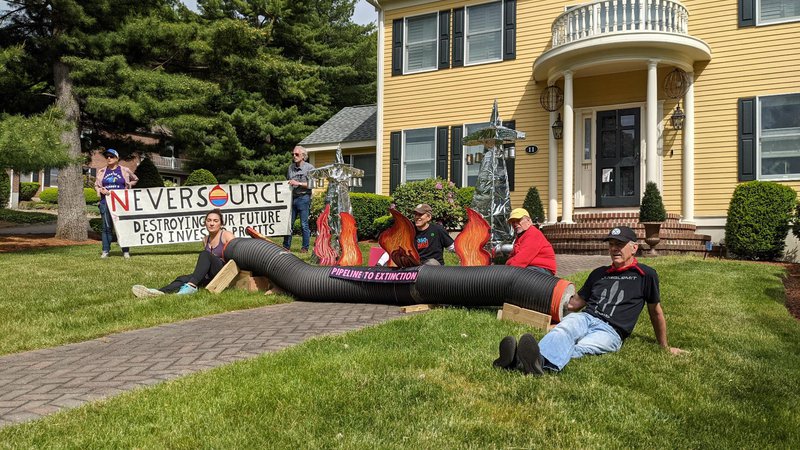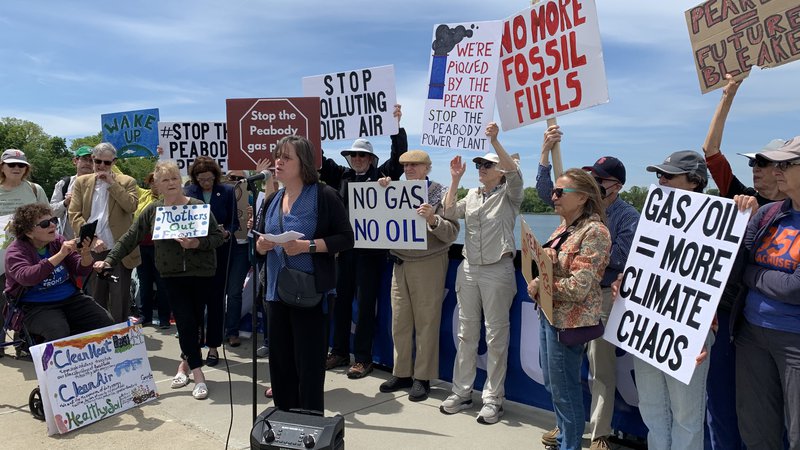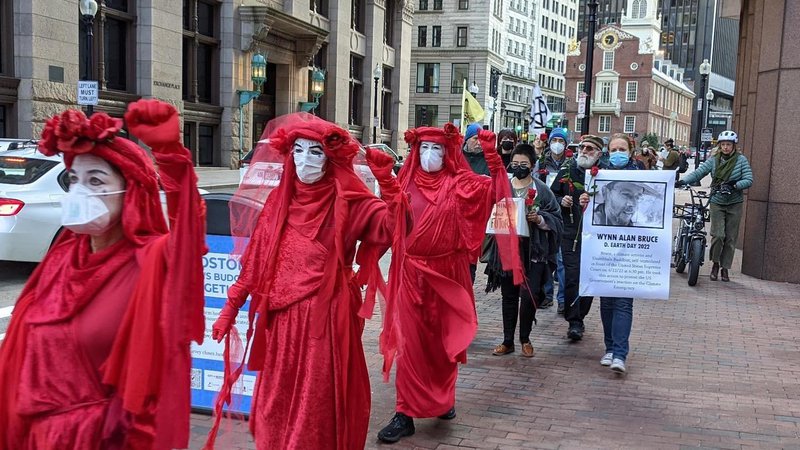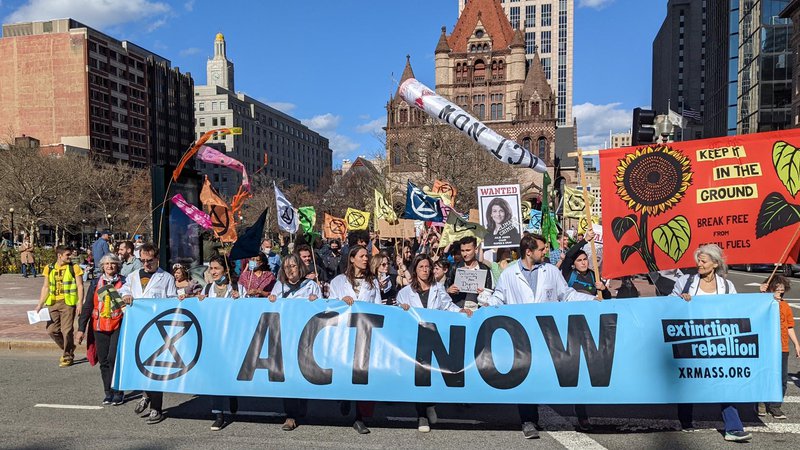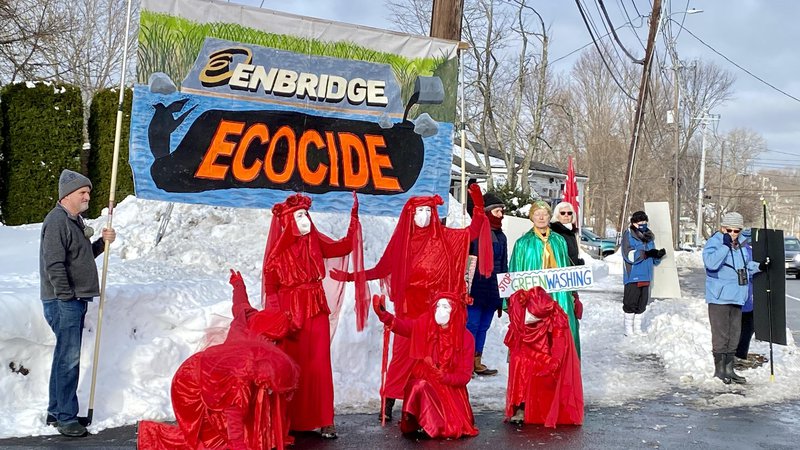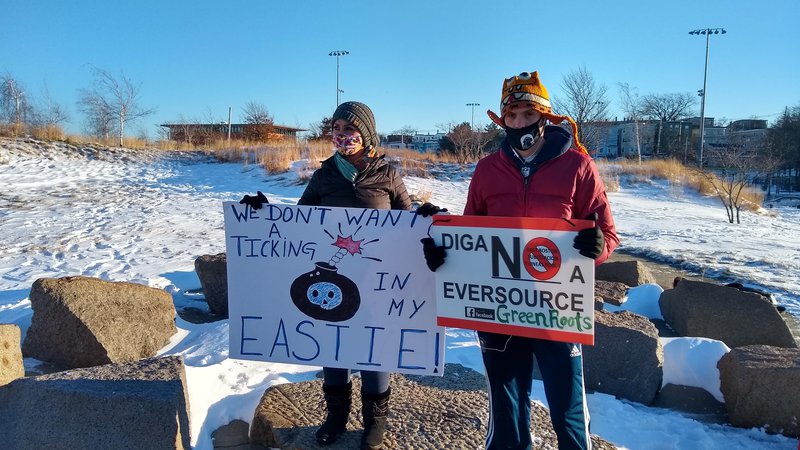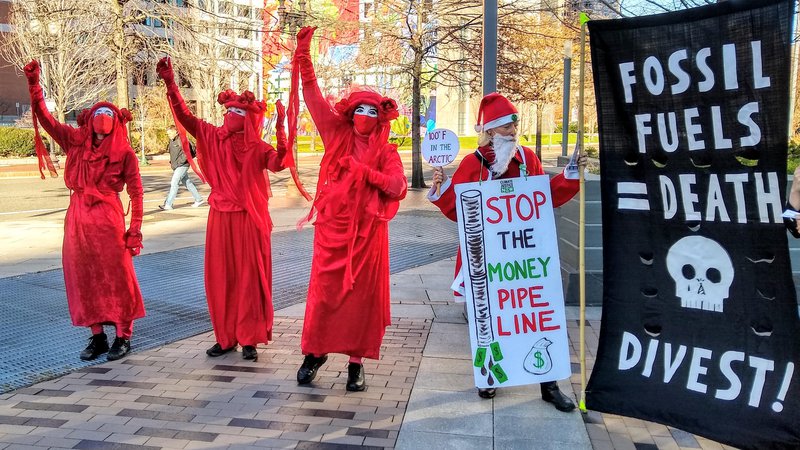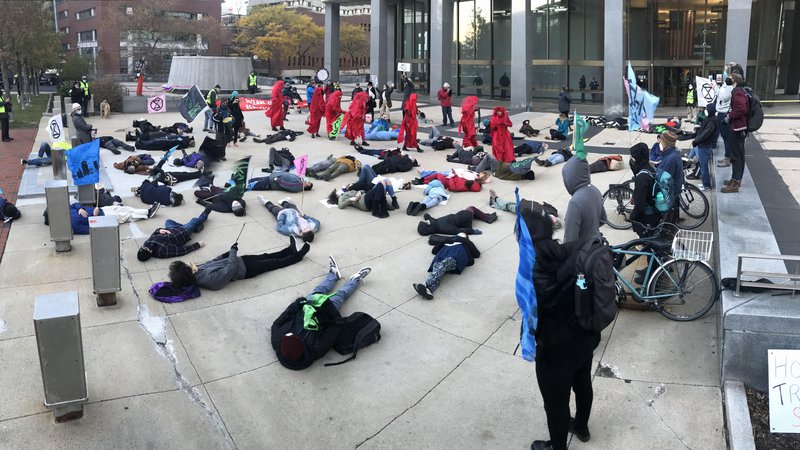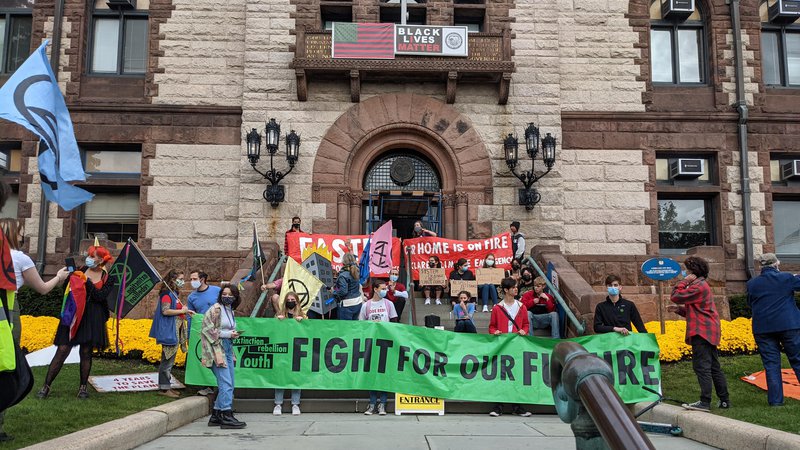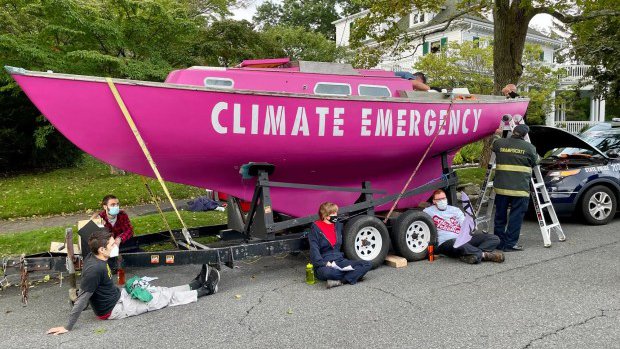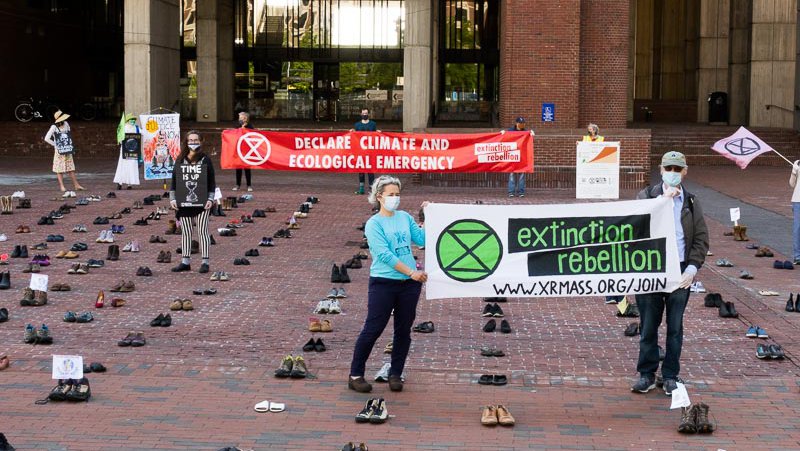
Extinction Rebellion held a Stand-in at City Hall Boston
BOSTON, MA — Local members of the international grassroots environmental movement, Extinction Rebellion, held a stand-in today at City Hall Plaza.
Normally, Extinction Rebellion is out in the streets educating passersby about the climate and ecological emergency and holding large actions in public spaces. During the coronavirus pandemic, Extinction Rebellion Boston has stayed home and acted digitally to protect themselves and the health and lives of others.
This is Extinction Rebellion’s first action since the pandemic began, and the group followed strict social distancing guidelines and wore proper masks while urging Boston to declare a climate and ecological emergency.
The action includes signs, banners, speakers, and 200 pairs of shoes placed in City Hall Plaza. The shoes have small signs placed on top, reading “System Change, not Climate Change”, and, “Love Earth. Protect Life.”
“The shoes represent the people we have lost and will lose if we don’t act in accordance with science. The government must protect the health and well-being of the planet and its people, whether that be from pandemics like COVID-19 or to climate-related catastrophes. We must learn from our current experience and act now to mitigate the climate crisis,” says James Comiskey of Extinction Rebellion.
Members of Extinction Rebellion are demanding that the City of Boston declare a climate and ecological emergency, one of the group’s core demands. An emergency declaration is an important step in mitigating any crisis—whether it be a pandemic or climate change— because it opens up additional funds and resources to combat the crisis and also allows for emergency plans to pass quickly.
The Boston City Council adopted a resolution in January 2020 declaring that the climate crisis is a public health emergency, but this resolution is non-binding and doesn’t ensure any follow-up action from the city. Boston has yet to declare a climate emergency. ¹
The United States declared a state of emergency due to the COVID-19 outbreak on March 13, 2020, when just 1645 total cases were known. Twenty-one states declared a state of emergency for COVID-19 before the federal government took action, including the state of Massachusetts.
According to research published in the Scientific American, the effects of human induced climate change causes around 150,000 deaths annually and is projected to cause 300,000 deaths annually by 2030. The New England Journal of Medicine reports that a convervative estimate of deaths due to the effects of climate change will reach over 500,000 people a year globally by 2050. ² ³
These numbers only include deaths related to changes in climate and don't include premature deaths due to other environmental impacts like air pollution and pandemics. Pandemics become a larger risk as we continue to destroy natural habitats which forces wildlife into human spaces. According to the World Health Organization, climate change will increase the transmission season of many diseases as well as give diseases the ability to affect larger geographical areas. Deaths due to malaria, diarrheal diseases, and dengue are expected to increase drastically. As permafrost melts, bacteria and pathogens that are frozen in the ground, like those that cause Anthrax, will resurface and spread more easily. To exacerbate these effects, the World Health Organization predicts that by 2030, 42% of the world will not have access to healthcare or will not be able to afford it. ⁴ ⁵
According to a paper written in Nature, by 2100 74% of the world's population may experience extreme heat and humidity that are strong enough to cause death. ⁶
“We must act now and not deny the reality of the climate and ecological emergency. Soon it will be too late and the outcome will be catastrophic,” says Susan Lemont.
The measures we put in place to recover from the COVID crisis will shape climate policy and environmental outcomes now and in the future, which some groups are calling a “green recovery”. Society has proven that it can act swiftly to mitigate an emergency and groups like Extinction Rebellion want to see this done to the scale of the climate crisis.
One of the themes of the socially distant stand-in at City Hall was the link between the mitigative measures between both the pandemic and climate change: declaring an emergency, discretionary travel, working from home to avoid polluting commutes, strong local communities, local farming to ensure food security, curbing consumerism, and more public space for pedestrian use, to name a few.
Mitigative measures to the climate crisis do not have to carry the emotional burden of a pandemic, as long as those mitigative measures are put into place before climate change brings civilization to a halt. A green recovery plan based on building renewable energy does not halt the economy. On the contrary, as is the case with the Green New Deal, it would pull us out of the economic slump caused by the coronavirus and simultaneously protect the natural world. ⁷
“Working to save our earth won't keep us separated in our houses and offices, it would get us outside, building and working together to ensure a just and livable earth for ourselves and future generations,” says James Comiskey.
Extinction Rebellion MA calls for stimulus and bailouts for renewable energy infrastructure as opposed to bailing out dangerous and destructive oil, coal, and natural gas corporations which are fueling our destruction. Climate scientists project that if we do not act now, our earth will turn into an “uninhabited hothouse earth” with the disintegration of organized civilization as soon as 2050. ⁸ ⁹
*Extinction Rebellion Massachusetts is an autonomous chapter of the international grassroots movement, Extinction Rebellion (XR), which started in London in 2018. The purpose of XR is to tell the truth about how dire the ecological and climate crisis is and spark immediate action in order to prevent complete climate and ecological collapse. We aim to mobilize people around the world to utilize nonviolent direct action to demand that governments take radical action to avert societal collapse caused by widespread climate and ecological disaster, and to protect front-line communities, biodiversity, and the natural world. This movement is non-political, and unites all of humanity behind a singular goal of a just and livable future. Learn more at: xrmass.org
- City of Boston: City Council affirms climate crisis as a public health emergency
- Scientific American: The Impact of Global Warming on Human Fatality Rates - Are the effects of climate change on human life being monitored?
- NEJM: The Imperative for Climate Action to Protect Health
- Foreign Affairs: Climate Change Is Already Killing Us - How Our Warmer and Wetter Planet Is Getting Sicker and Deadlier by the Day
- Nature: Global risk of deadly heat
- WHO: Climate Change and Health
- Forbes: The Economic Case For The Green New Deal
- BBC: Climate change: 'Hothouse Earth' risks even if CO2 emissions slashed
- CBC: Without action on climate, civilization will collapse, David Attenborough warns
Related Stories:
Featured:
-
The third annual Week of Rebellion is full of opportunities for celebration and action!
-
Our government had the opportunity to finally turn our state into a "climate leader," and they decided yet again to prioritize profits and political posturing over the well-being of residents.
-
Prominent climate scientists and activists demand immediate climate action in the United States.
-
Stop the Fossil Fuel Industry, Now: List of events for Extinction Rebellion Boston's September week of rebellion
-
A compilation of books, movies, articles, and ways to take action to protect Black lives
-
Nadia Colburn, PhD and member of Extinction Rebellion Media team, discusses how to talk about the climate and ecological crisis with family and friends.
Upcoming Events:
-
Thu Mar 5th @ 7:30 p.m.
-
Sat Mar 7th @ 11 a.m.
-
Wed Mar 11th @ 11 a.m.
